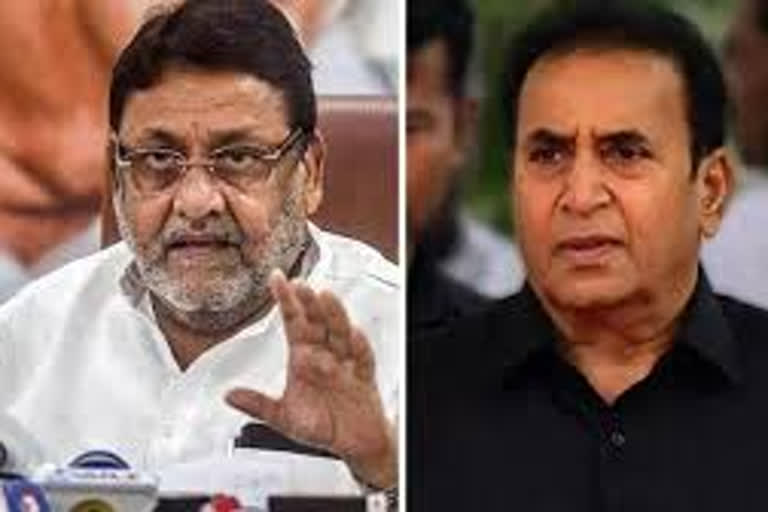Mumbai: Saying that the constitutional right to vote is not absolute, the Bombay High Court on Friday rejected petitions filed by NCP leaders Nawab Malik and Anil Deshmukh seeking temporary release from prison for casting a ballot in the June 20 Maharashtra Legislative Council election. Malik, who is still a cabinet minister in the state, and former Maharashtra home minister Anil Deshmukh, both of whom are in prison after being arrested in separate money laundering and corruption cases, had sought the court's permission to be let out of custody "for a few hours," and "under escort protection" to vote.
Justice N J Jamadar rejected their pleas, saying that while their lawyers argued that their clients must be permitted to vote to uphold democratic principles, the concept of democracy "transcended electoral democracy." The embargo in law, imposed via section 62 (5) of the Representation of the People Act, was based on reason, the court said, adding that it has been imposed to ensure "purity of electoral process and probity of the participants therein."
Also read: HC rejects plea from Nalini, Ravichandran accused in Rajiv murder case
The two leaders moved the court earlier this week contending that as they are members of the Legislative Assembly and representatives of their respective constituencies, they ought to be given the opportunity to vote in the Council election. Their counsels Amit Desai and Vikram Chaudhri argued that while section 62 (5) fettered their clients' right to vote, the HC had "unfettered powers to use its discretion" and grant relief.
The Enforcement Directorate's counsel Additional Solicitor General Anil Singh opposed the pleas, saying that the law has imposed a bar on prison inmates from casting votes, and therefore the HC must not intervene and render the legal provision ineffectual. The HC agreed with Singh's submissions. "The claim to the exercise of this constitutional right can, by no stretch of the imagination, be said to be absolute," the court said in the judgement.
It was possible, for the sake of argument, that on the eve of an election a number of members of the electoral college would be put behind the bars with a view to deprive them of the opportunity to vote so as to achieve the desired result, and in such a case a court could definitely step in and exercise its discretion, the judge said. But the present case was different, he noted. "In the case at hand, the applicants have been in custody for long.
No such motive of putting the applicants behind the bar so as to prevent them from participating in the election process can be attributed, at least, at this length of time," the HC said. Earlier, Malik and Deshmukh had moved the courts for temporary bail for voting in the June 10 Rajya Sabha election from Maharashtra but were denied relief. (PTI)



